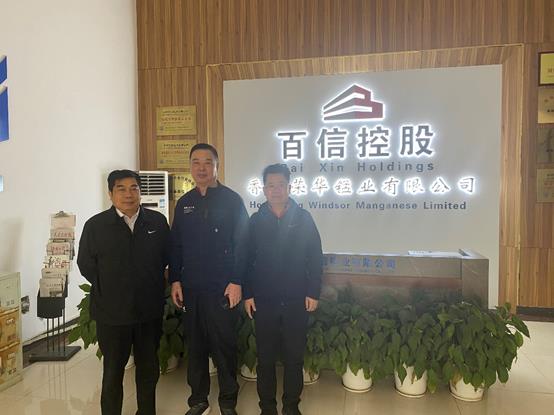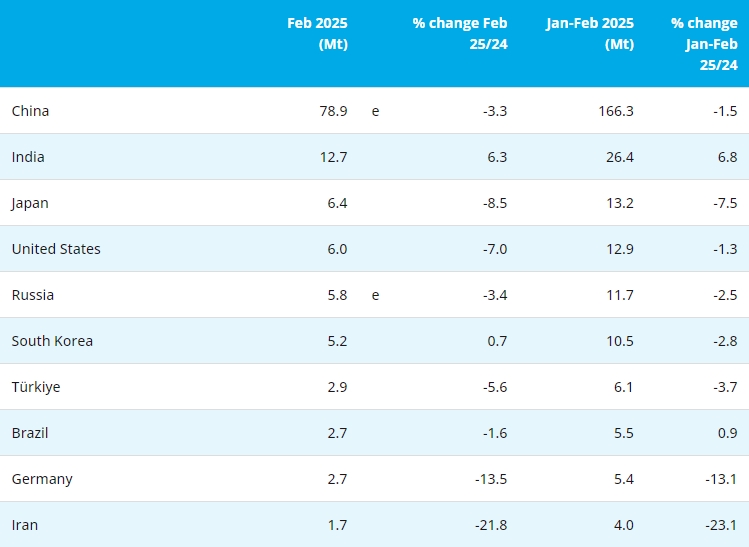[ferro-alloys.com]S11D Eliezer Batista Complex completed on December 17 two years of operations in Canaã dos Carajás, Brazil. The unit has reached its performance goals since its inauguration in 2016. During the very first year, the plant reached its planned production of 22 million tons, and for 2018 it should meet its goal of surpassing 54 million tons.
Proportional to this increase in production, the economic contribution of mineral activities is also setting new records. The revenue generated through mining royalties is already 10 times greater than the amount generated in 2016. In terms of infrastructure for the city, over 40 construction projects were completed to support the City Government in the areas of education, health, job and income generation projects, and electric power supply, among others.
In 2016, for Vale's operations in Canaã up until then, copper mining alone generated a total of R$28.7 million for the city through revenue generated from the Federal mineral exploration tax (CFEM). Now in 2018, a total of R$283.2 million was generated from January to November with the operation of both Sossego and S11D. The volume is 10 times greater than in 2016.
The compensation is passed on to the National Mining Agency (ANM), which then distributes the sum to the federal, state, and city governments, based on those percentages determined by law. Of this total volume generated in 2018, R$170 million were collected for Canaã, with 86% of this total originating from iron mining - S11D.
During the month of December, a presentation for investors that takes place each year addressed the planned production capacity expansion for S11D from 90 to 100 million tons per year starting in 2022, with an investment of approximately US$770 million, increasing the capacity of the North System (Carajás and S11D) from 230 to 240 million tons and expanding revenue and the economic contribution for the region.
Also since the start of the S11D installation in 2013, Vale invested more than R$150 million in social actions, involving 40 construction projects through a public-private partnership with the Canaã dos Carajás City Government. These projects included the construction and remodeling of eight municipal schools, remodeling and expansion of the hospital, construction of the Courthouse, reopening of the House of Culture, and a series of other actions focused on developing other economic skills in the municipality. Examples include projects in the rural zone, the honey agroindustry, producers' fair, and donation of a 1,588-hectare construction site to install an industrial and educational hub in the municipality.
Reference The S11D Complex production is aligned with the global demand for premium ore, also called "green," considered top quality. The product boosts the performance of the steelmaking blast furnaces, reducing fuel consumption (metallurgical coal or coke) and, consequently, greenhouse gas emissions (GEE). This is also aligned with the company's goal of becoming a global reference in mining sustainability by 2030.
Vale's main client, China, has increasingly demanded this type of ore to help it reduce its GEE emissions. In 2016, the country's concentration of polluting particulate micrograms present in the air was 40 times greater than the level recommended by the World Health Organization (WHO). Recently, the Asian giant committed to reducing its emissions by 2030 to help lessen the climate change affecting the planet.
The premium ore produced in the region has all the potential needed to contribute toward this reduction. It generates 17% fewer particulate matter emissions, 16% fewer CO2 emissions, 1% fewer NOx (nitrogen oxide) emissions, and 8% fewer SOx (sulphur oxide) emissions.
(Vale official website)
- [Editor:王可]



 Save
Save Print
Print Daily News
Daily News Research
Research Magazine
Magazine Company Database
Company Database Customized Database
Customized Database Conferences
Conferences Advertisement
Advertisement Trade
Trade










 Online inquiry
Online inquiry Contact
Contact

Tell Us What You Think